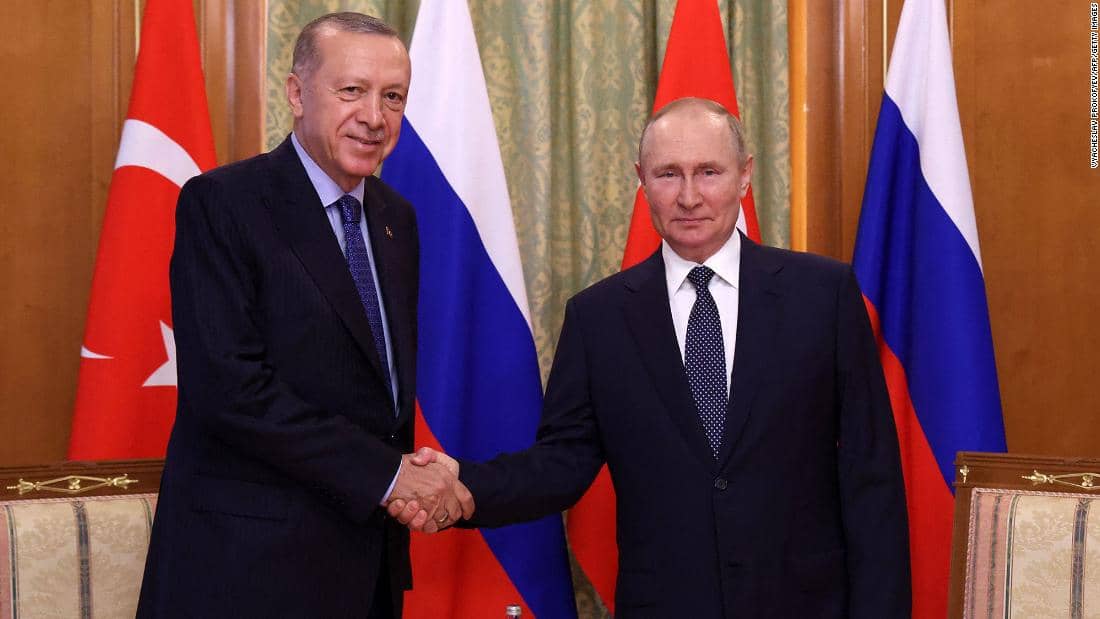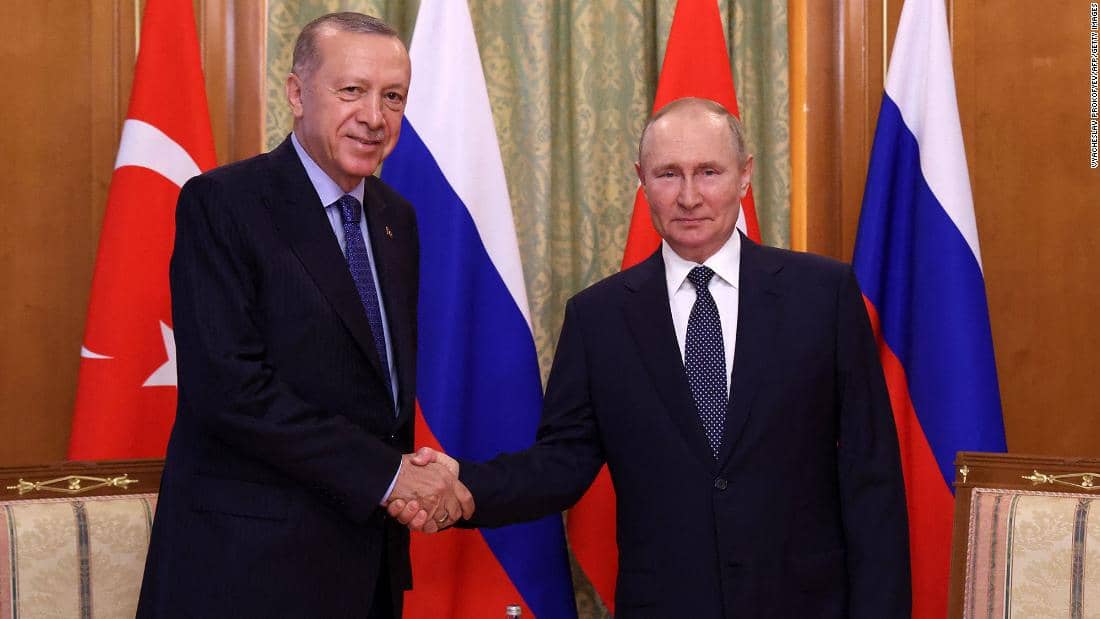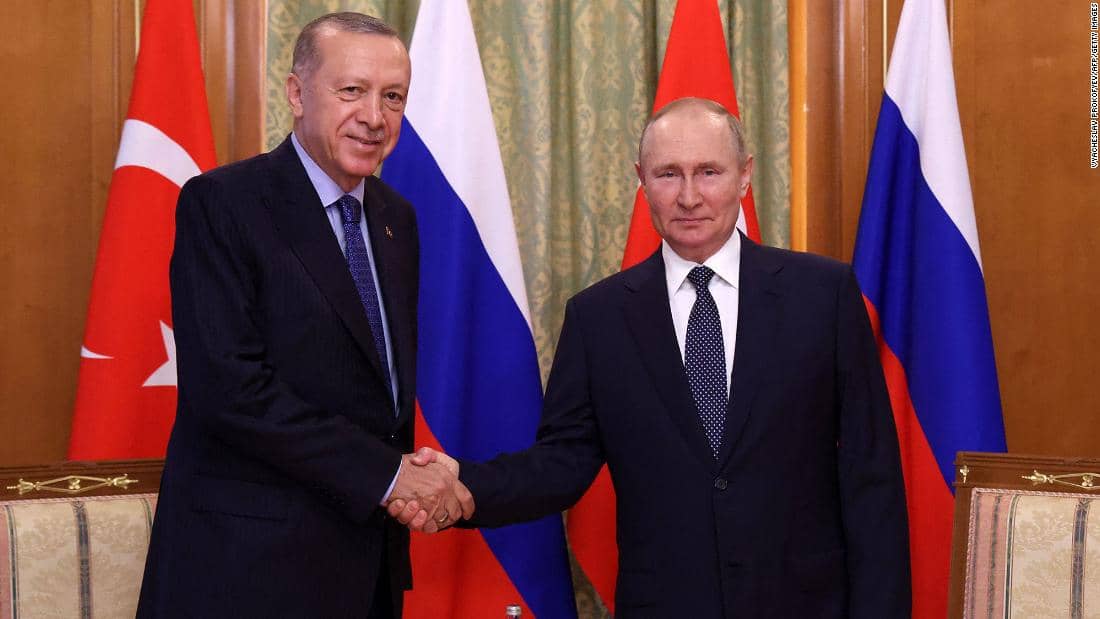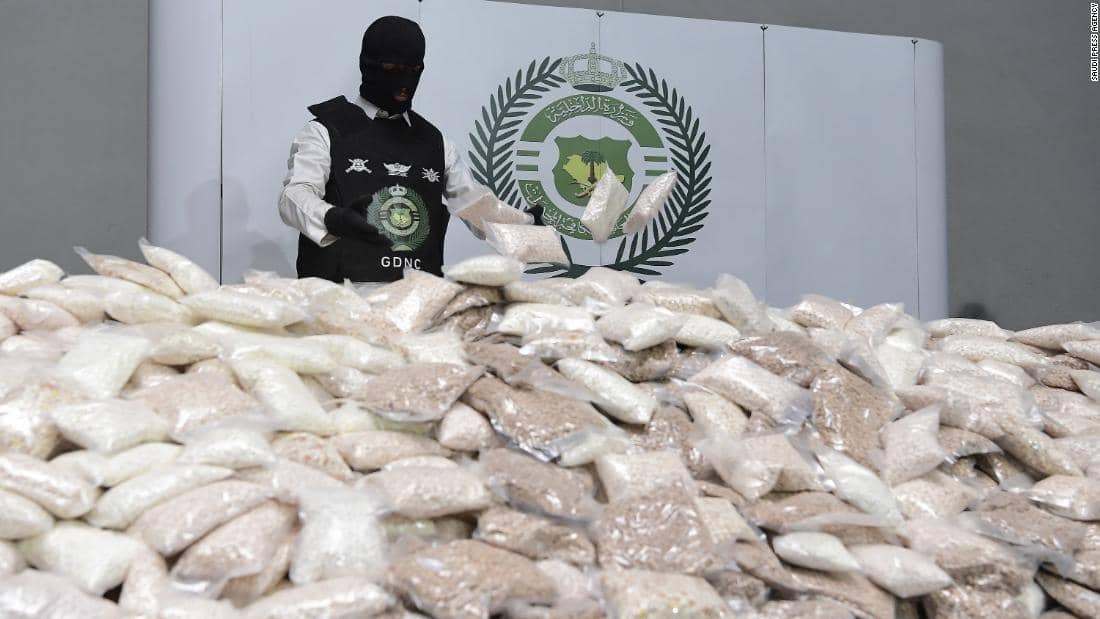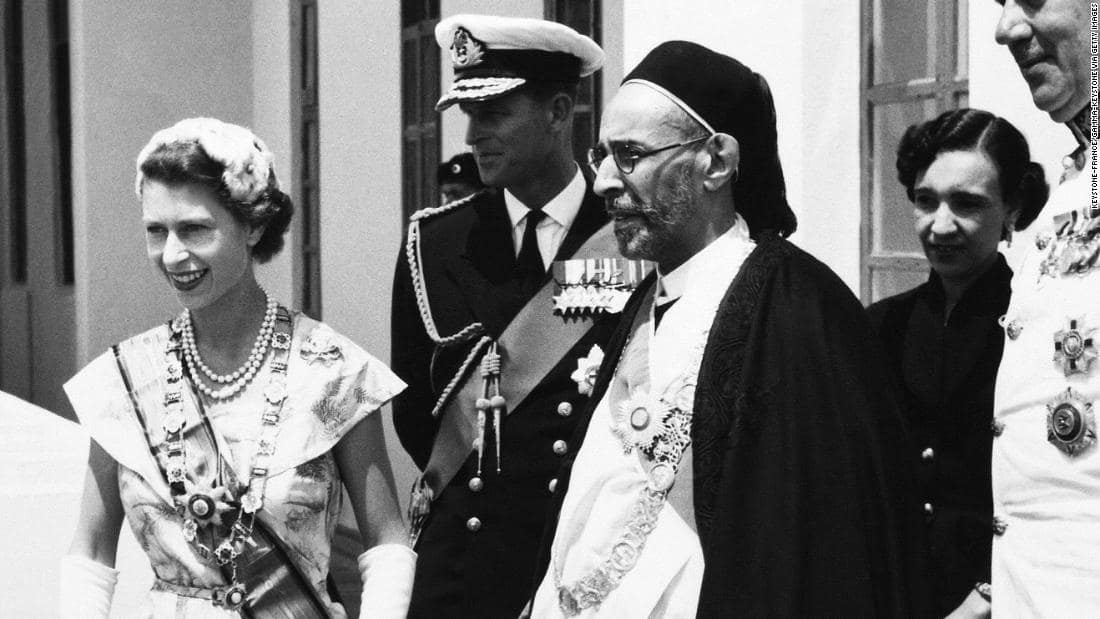But in other ways, some of the region’s countries have prospered immensely as the fighting rages on, adding hundreds of billions of dollars to their coffers. Here are four ways the Ukraine
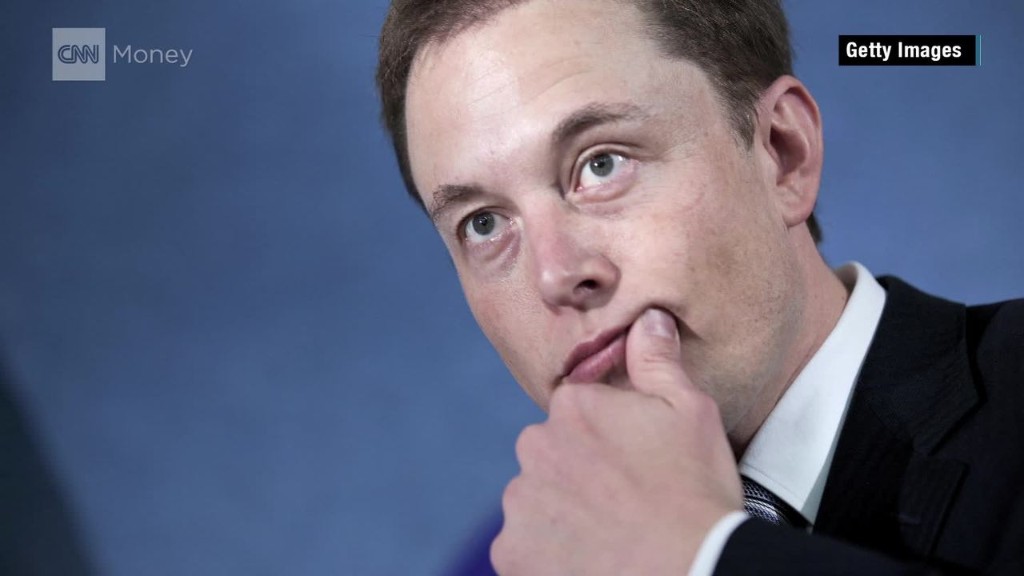
Tesla is bringing its electric cars to the heart of the oil producing world.
The automaker announced Monday that its first official venture in the Middle East will be in the United Arab Emirates.
The first cars — the Model S and Model X — will hit the road this summer.
“Timing seems to be good to really make a significant debut in this region starting in Dubai,” Tesla (TSLA) CEO Elon Musk said at the World Government Summit in Dubai.
Tesla owners will have access to two existing supercharging stations in the UAE, and Telsa plans to open five more by the end of the year.
Despite sitting on huge oil and gas reserves, the UAE has ambitious plans to go green. Last month it said it will invest $163 billion to boost alternative energy use over the next three decades.
Related: Tesla reveals what it will charge for a charge
It’s the latest in a series of expansion announcements for Tesla. Last week, Musk hinted that Tesla may soon come to India.
Musk has also teased plans to build “heavy-duty trucks and high passenger-density urban transport” as well developing a ride-hailing network, which could be similar to Uber.
Speaking in Dubai, the entrepreneur expounded on the future of robotics.
“We will see autonomy and artificial intelligence advance tremendously,” Musk said. “In probably 10 years, it will be very unusual for cars to be built that are not fully autonomous.”
Related: Elon Musk’s surprising secret weapon: Trump?
But he also warned of the “disruptive” nature of autonomous vehicles.
“That disruption I’m talking about will take place over about 20 years. Still, 20 years is a short period of time to have something like 12% to 15% of the workforce be unemployed.”
Musk said governments must pay close attention to artificial intelligence, create sustainable transport and be wary of mass unemployment.
“This will be a massive social challenge. Ultimately, we need to think about universal basic income. I don’t think we have a choice,” he said. “There will be fewer and fewer jobs that a robot cannot do better.”
— Seth Fiegerman contributed reporting.
CNNMoney (Dubai) First published February 13, 2017: 11:06 AM ET
Don't Miss
Story highlights Astronauts can temporarily gain 2 inches in height but suffer muscle loss and back pain More countermeasures involving
New York CNN Business — In a surprise reversal, Qatar announced a ban of alcoholic beer at the eight stadiums
But in other ways, some of the region’s countries have prospered immensely as the fighting rages on, adding hundreds of
But in other ways, some of the region’s countries have prospered immensely as the fighting rages on, adding hundreds of billions of dollars to their coffers.
Here are four ways the Ukraine war has affected the Middle East over the last six months:
Energy exporters are cashing in
Strongmen feel emboldened
Regional strongmen that once came under harsh criticism from the West appear to be back in favor.
The war has also allowed Turkish President Recep Tayyip Erdogan to position himself as an indispensable figure in the international order. Faced with a sinking economy at home and elections next year, he has skillfully used his country’s geopolitical position to extract concessions for Turkey abroad by delaying the accession of Nordic countries to NATO. Erdogan has also maintained cordial relations with Russia while publicly opposing the war, selling coveted drones to Ukraine and even mediating between the belligerents.
Alliances are shifting
Food and inflation crises raise tensions
The first ship carrying grain left Ukraine on August 1 and was initially bound for Lebanon. The shipment however changed course after Lebanese buyers refused the delivery, so it sailed to Egypt instead, according to Reuters.
The digest
US airstrikes hit Iran-backed groups in Syria
The US military conducted airstrikes Tuesday targeting Iran-backed groups in Syria’s Deir Ezzor, US Central Command said in a statement. The strikes targeted “infrastructure facilities used by groups affiliated with Iran’s Islamic Revolutionary Guard Corps.” No one was killed in the attack, according to an initial assessment by the US military, but a Syrian activist group said at least 10 people were killed and three were wounded.
- Background: American troops have been present in Syria since 2015 to combat the Islamic State, which has often brought them into conflict with Iran-backed groups. Israeli airstrikes targeted the warehouses at the same location in January 2021, according to Syria’s state news agency. The attack comes amid reports of indirect talks on reviving the nuclear deal between Iran and the US reaching an advanced stage.
- Why it matters: As talks advance, the US may be sending a message that even though it is working on reaching an agreement with Iran, it will continue to target Iran-backed groups in the region. Washington has refused to remove the Iranian Revolutionary Guard Corps from its list of terrorist organizations, which Tehran had previously demanded.
Turkey says it has no preconditions for dialogue with Syria
In a softening of its stance, Turkish Foreign Minister Mevlut Cavusoglu said Ankara has no preconditions for dialogue with Syria but any talks should focus on security on their border.
- Background: Turkey cut ties with Damascus 10 years ago in response to the uprising in Syria and backed rebels fighting to topple the Bashar al-Assad regime. But Turkey has in recent years maintained contact with the regime, directly through intelligence channels and indirectly through the Astana Group process, which aims to solve the Syrian civil war.
- Why it matters: Turkish President Erdogan has indicated he wants to launch yet another military incursion into northeast Syria. Over decades of tension, Turkey has already launched three military operations against Kurdish fighters in Syria’s north, the latest of which was in 2019. Asked about prospects for talks, Cavusoglu said they would need to have specific goals. “No conditions for dialogue, but what is the aim, the target? It needs to be goal-oriented,” he said.
Beirut port silo collapses two years after fatal blast
The northern wheat silo damaged after the deadly Beirut port blast in 2020 collapsed on Tuesday, state-run NNA reported. A large dust cloud was sent into adjacent areas of the port after the implosion as smoke from fires continued rising from the debris.
- Background: On August 4, 2020, hundreds of metric tons of ammonium nitrate ignited, sparking a massive blast in the Lebanese capital’s port, killing more than 215 people and injuring thousands. The silos had been on fire since then. Over the past month, segments of the silos were collapsing gradually as the army continued cordoning the area.
- Why it matters: The silos had become a symbol of dysfunction in Lebanon. Earlier this year the government had rolled out a plan to demolish them. Civil society groups, who see the silos as a memorial to the blast, reacted with outrage, and the plan was scrapped.
What to watch
Water shortages have turned the lush green marshlands of Iraq into a desolate desert. Watch Jomana Karadsheh’s report on the effect of climate change in the country.
What’s trending
Lebanon: #Bachir_Gemayel
Twitter users in Lebanon are marking 40 years since Bashir Gemayel was elected President by the country’s parliament. He was assassinated before taking office in 1982.
A deeply divisive figure in Lebanon’s history, Gemayel founded and led the Lebanese Forces, the military wing of the Christian Phalange party that continues to play a role in the nation’s politics today. He was supported by many Lebanese Christians but considered a traitor by others for his cooperation with Israel, which invaded Lebanon in a 1982 war.
In October 2017, Habib al-Shartouni, a member of Lebanon’s Syrian Social Nationalist Party, was found guilty in absentia by a Lebanese court for planting the bomb that killed Gemayel.
Oman: #Turn_on_Discord
Omanis have turned to Twitter to complain about not being able to access popular social media platform Discord.
With over 150 million active monthly users, Discord plays a big role in the lives of gamers as it serves as a chat room for private games as well as those streaming their games.
Discord also grew to become a significant element in the utility function of non-fungible tokens (NFTs), which are growing in popularity around the Gulf states.
Saudi Arabia: #How_many_wives_would_you_take
While one user said marriage is not a “priority” for him, while another lamented that men could hardly attend to one wife. One user tweeted a photo with the number three.
Islam allows men to take up to four wives. While the practice isn’t widely adopted in the Muslim world, it isn’t uncommon either. Women can only take one husband.
Don't Miss
US national security adviser Jake Sullivan confirmed Sunday that the US will allow European countries to start training Ukrainian fighter
A view of the Kremlin in Moscow, Russia, on September 19, 2021. (Alexander Nemenov/AFP/Getty Images) Senior Russian officials at the
Turkish President Recep Tayyip Erdogan announced an extension of the Black Sea grain deal Saturday, but he did not specify a new
Police said he was under the influence of shabu, a methamphetamine, according to local papers.
The kingdom, they say, is one of the largest and most lucrative regional destinations for drugs, and that status is only intensifying.
Captagon was originally the brand name for a medicinal product containing the synthetic stimulant fenethylline. Though it is no longer produced legally, counterfeit drugs carrying the captagon name are regularly seized in the Middle East, according to the European Monitoring Centre for Drugs and Drug Addiction.
The drug was popularized in the kingdom some 15 years ago but has taken off more intensely in the past five years, “perhaps becoming on par with cannabis,” according to Vanda Felbab-Brown, a fellow at the Brookings Institution in Washington DC, who has written on the topic.
Saudi Arabia’s Center for International Communication didn’t respond to CNN’s request for comment.
“Captagon’s amphetamine-type properties are sought out as a coping mechanism that can aid users facing food insecurity in staving hunger, and inducing a euphoric ‘rush’ that users have said to help with traumatic stress,” said Caroline Rose, a senior analyst at the New Lines Institute in Washington, D.C. who has studied the captagon trade. “It’s also been said that these same traits for captagon have been sought out by foreign workers in wealthy Gulf countries like Saudi Arabia, seen to aid work performance.”
“In wealthier consumer markets, the drug has a different appeal, serving as a recreational activity amongst its growing youth population that, despite social reforms… have reportedly struggled with boredom amidst widespread youth unemployment and a lack of opportunities for leisurely activities,” said Rose. “Some consumers have justified captagon as less of a taboo substance, compared to ‘harder’ drugs like opiates and cocaine.”
Since many young people in Saudi Arabia have been taking drugs as a result of boredom and lack of social opportunities, the increased freedoms introduced by Crown Prince Mohammed bin Salman could help reduce some of that use, said Felbab-Brown.
“The important thing is neither to curtail the freedoms, nor to turn concerts into places of dragnets and raids, but rather to educate young people,”.
Over the past few years, a number of drug rehabilitation centers have popped up across the kingdom after the government began licensing private establishments.
“We’re in high demand, unfortunately, “But at least people have an option now, instead of having to go to neighboring countries to seek treatment.”
Despite the presence of rehabilitation centers, Rose says there is little public health messaging or campaigning to raise awareness about captagon.
“While this taboo regarding drug consumption in the kingdom is not going anywhere, the government’s tendency to exclusively securitize this issue and downplay its role as a destination market will be harder to ignore,” she said.
Felbab-Brown says drug policies in the Middle East have focused on the harshest of responses.
“Unlike large parts of the world [that] have walked away from such rigid and mostly ineffective or outright counterproductive policies, the Middle East has often doubled down on them,” she said. “Imprisoning users is ineffective and counterproductive.”
The digest
US says Iran reply on EU proposal for revival of nuclear deal is “not constructive”
- Background: Earlier this week during a press conference in Russia, Iranian Foreign Minister Hossein Amir-Abdollahian said Iran needs guarantees that the US will not withdraw from the nuclear accord and reapply sanctions as happened under the Trump administration.
- Why it matters: The US and Iran have been trading responses to a “final” EU text aimed at reviving the 2015 nuclear deal. EU foreign policy chief Josep Borrell has said he hopes the talks can be concluded in a matter of days. French President Macron also said on Thursday he hopes to conclude the talks in the next few days. It’s unclear how the talks will move forward from here as Iran continues to increase its uranium enrichment and break commitments under the nuclear deal.
Four killed during Shiite clashes in Iraq’s Basra
Clashes between rival Shiite groups killed four people in Iraq’s Basra on Thursday, as the fallout from the country’s worst political violence in years continues, Reuters reported. Basra is the main oil-producing city in Iraq and now violence has spread from Baghdad to the south.
- Background: The violence began earlier this week in Baghdad when powerful Shiite cleric Muqtada al-Sadr announced his resignation from political life. That move set off an intense round of political infighting between Iran-backed Shiite groups and al-Sadr’s supporters. Both sides have been trying to exert control since parliamentary elections in October 2021 saw Iran-backed blocs lose seats to Sadrists. Despite his win, al-Sadr failed to form a government amid opposition from his rivals.
- Why it matters: The episode served as a reminder of the fragility of the government in Baghdad, which remained largely neutral in the crisis, as well as the competing players at home and abroad that seek to control the country’s politics.
Turkish pop star could face up to 3 years in prison for joking about religious schools
- Background: Last week, Gulsen was jailed pending trial after a video circulating on social media showed her making a comment about religious schools in Turkey, according to the state-run Anadolu news agency. During a concert in April, Gulsen said, “[He] graduated from Imam Hatip [religious schools.] That’s where his pervert side comes from,” referring to a person on stage. The singer denied the charge, saying it was a joke, and apologized to those offended by her remarks. She has since been released from custody but placed under house arrest. An Istanbul criminal court will assess the indictment and decide to accept or refuse it. If accepted, the hearings will start and Gulsen will be brought before court.
- Why it matters: Gulsen has previously been targeted by Turkish conservative groups for her revealing stage outfits and support for the LGBTQ community. Her recent arrest sparked outrage and support from fans on social media. Some critics say it’s part of a move by Turkish officials to gain support from their religious and conservative base ahead of elections next year.
Don't Miss
NASHVILLE, Tenn. (WTVF) — Children in state custody are spending months in Tennessee hospitals because the Department of Children’s Services
Tesla is bringing its electric cars to the heart of the oil producing world. The automaker announced Monday that its
But in other ways, some of the region’s countries have prospered immensely as the fighting rages on, adding hundreds of
After its withdrawal, Britain built strategic partnerships with Gulf states involving defense, security, investment and energy interests — and the royal family played a role in safeguarding that relationship.
“The royal family has provided a means for Britain to forge and maintain decades-long connections with ruling elites in the region, especially in the Gulf, in ways that would be difficult for elected political leaders to replicate,” Kristian Ulrichsen, fellow for the Middle East at Rice University’s Baker Institute told CNN. “Although this has not always translated into measurable outcomes for British interests in the region.”
The Queen had made two sets of state visits to the Gulf region in 1979 and 2010 and images of her laughing alongside the ruling elite depicted a strong affinity.
The number of mutual visits between Gulf Arab and British royals is comparable to royal family visits to the Commonwealth realms, said Onley. “This is quite surprising considering that the [Gulf] is not a part of the Commonwealth, but in many ways, it is a de facto member… Britain is more than just a strategic ally [in the Gulf], it’s family in many respects,” he said.
The Queen started her reign when Britain was trying to reformulate its relationship with the countries it had previously controlled, Abdel Razzaq Takriti, a history professor at Brown University, told CNN.
“In that period, the region was engaged in a massive range of anticolonial uprisings… and attempts to overthrow British domination,” he said.
Those attempts succeeded, and under Queen Elizabeth’s reign, Britain’s influence in the Middle East underwent dramatic change, as colonial structures have now largely disappeared.
“The Queen’s reign can be characterized as overseeing the management of decline of Britain as an imperial and a global power, a period that was encapsulated by the fallout from the Suez Crisis in 1956, just four years into her reign, and the struggle to rebuild Britain’s standing in the region in the years that followed,” Ulrichsen said.
Takriti said that it’s difficult for people in the Middle East to move on from Britain’s history when its impact continues to linger.
The digest
Turkish drone maker to build Ukraine factory, Zelensky says
- Background: Baykar’s Bayraktar TB2 drone has been hugely popular in Ukraine, where it helped destroy many Russian artillery systems and armoured vehicles. A video posted online showed Zelenskiy giving Bayraktar the Ukrainian Order of Merit. In return, Zelenskiy received a traditional embroidered Ukrainian shirt featuring a drone.
- Why it matters: Russia has previously complained to Turkey over its sale of the drones to Ukraine. Turkey hasn’t joined its NATO allies in sanctioning Russia over its war in Ukraine and has facilitated talks between the warring parties.
Greek PM wants to keep channels with Turkey open despite “unacceptable” comments
Greek Prime Minister Kyriakos Mitsotakis said on Sunday that Athens would try to keep communication channels with Ankara open despite recent “unacceptable” comments from Turkish President Tayyip Erdogan, Reuters reported. He said he has always been willing to meet Erdogan.
- Background: Erdogan has accused Greece of occupying demilitarized islands in the Aegean Sea, saying Turkey was ready to “do what is necessary” when the time came. The European Union last week voiced concern over Erdogan’s statements, while Greece sent letters to NATO and the United Nations, complaining over what it called “inflammatory” comments.
- Why it matters: The two countries — NATO allies but historic foes – have been at odds for decades over a range of issues including where their continental shelves start and end, overflights in the Aegean Sea, the status of demilitarized islands, and divided Cyprus.
Iran urges Saudi Arabia to show goodwill in talks to revive ties
Iran has no preconditions in its talks with Saudi Arabia, Iranian Foreign Ministry spokesman Nasser Kanaani said on Monday, calling on Riyadh to adopt a “constructive approach” to improve ties, Reuters reported. “Iran will respond proportionately to any constructive action by Saudi Arabia,” Kanaani told a televised news conference.
- Background: Last month, Tehran said a delayed sixth round of talks between Saudi Arabia and Iran in Baghdad would take place when the conditions are right in Iraq. In May, Saudi Arabia’s foreign minister said there had been some progress in the Iraq-mediated talks with Iran but “not enough”.
- Why it matters: Tehran and Riyadh, the leading Shi’ite and Sunni Muslim powers in the Middle East, severed ties in 2016 with both parties backing opposite sides in proxy wars across the region, from Yemen to Syria and elsewhere. The talks occur as former Middle East foes move to mend fences. Last month, the UAE returned its ambassador to Tehran.
What’s trending
Saudi Arabia: Nazar Bahbari insults Saudi women
A renowned Saudi doctor’s research on women’s pornography-viewing habits has sparked controversy in the Gulf state, with many attacking the practitioner for “offending Saudi women.”
Nazar Bahbari is the director of the Saudi Society for Infectious Diseases in Jeddah who had acquired a large social media following during the Covid-19 pandemic as many tuned in to listen to his advice. He has over 230,000 followers.
Soon, Twitter accounts run by detractors of Saudi Arabia and its rulers began citing the video as evidence of the alleged negative impact of the social freedoms being introduced in the kingdom. Pornography is banned in Saudi Arabia.
Others attacked the doctor, with the Arabic hashtag “Nazar Bahbari insults Saudi women” trending on Twitter.
Bahbari revealed his results in the context of rising concerns over addiction to pornography, which he said hinders sexual relations in marriage. He defended his research on social media, noting that the survey included only 3,000 women, whose pornography-watching habits do not represent the entire community.
Don't Miss
CNN — More than 5 million people in Southern Connecticut and Southeastern New York, including most of New York City,
Tesla is bringing its electric cars to the heart of the oil producing world. The automaker announced Monday that its
But in other ways, some of the region’s countries have prospered immensely as the fighting rages on, adding hundreds of

